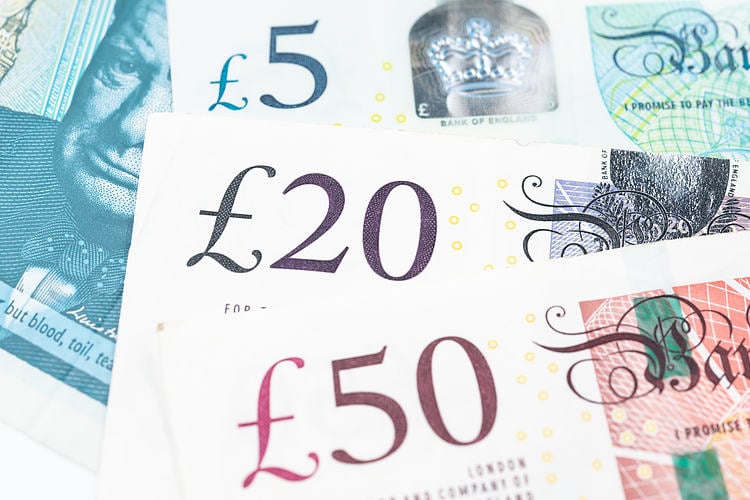
- GBP/USD is eyeing more gains after a break above 1.1600 amid improved risk appetite.
- The odds of a 75 bps rate hike by the Fed helped yields to rebound.
- Tightening fiscal and monetary policy would give a strong fight double-digit inflation riddle.
The GBP/USD pair is playing near the round-level resistance of 1.1600 in the early Tokyo session. The cable rebounded firmly on Friday after dropping to near the major cushion of 1.1500 amid a cheerful market mood. The risk-on impulse regained its traction after S&P500 shrugged off tech’s forward earnings uncertainty and rose sharply around 2.5%.
The US dollar index (DXY) remained capped in a 45-pips range as bumper risk-appetite restricted bulls to have a ball while higher chances of a bigger rate hike by the Federal Reserve (Fed) kept bears at the place. Also, the 10-year US Treasury yields reclaimed the 4% mark as a fourth consecutive 75 basis point (bps) rate hike by the Fed looks real.
A report from Goldman Sachs cites that the US central bank could go beyond its desired terminal rate of 4.75% to 5%. The road to a 5% terminal rate will go through the phases of 75 bps this week, 50 bps in December, and 25 bps in February and March, the report added.
But before that, the US ISM Manufacturing PMI data will remain in focus. The economic data is seen lower at 50.0 vs. the prior release of 50.9. Also, the ISM New Orders Index will be the crucial catalyst that displays forward demand and is seen significantly higher at 49.1 against the former figure of 47.1.
On the UK front, Tuesday’s monetary policy will be of utmost importance as it will be the first after UK novel leadership. To combat the double-digit inflation monster, Bank of England (BOE) Governor Andrew Bailey will prefer to go with expensive chips. Analysts at Rabobank look for a 75 bps rate hike to 3.00% from 2.25%. They explain that it would still be the largest rate hike of this cycle. They expect to see rates peaking at 4.75%.
After the disaster of the mini-Budget in late September, UK PM Rishi Sunak and Chancellor Jeremy Hunt are targeting to curtail the higher debt situation through fiscal policy, which will also be supportive of fighting against soaring price pressures. Reports from Financial Times claim that Sunak is exploring tax rises and spending cuts of up to GBP 50 billion, which is in line with the agenda of the bank of England (BOE) of bringing price stability.